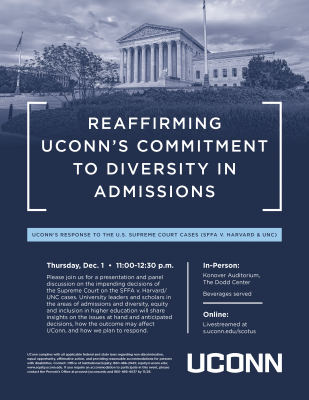Office of the Provost
Provost’s Office Monthly – September 2023


MESSAGE FROM THE PROVOST
Today, with pride and anticipation, we mark President Maric’s Inauguration Day, which signifies not only the beginning of a new chapter in our university's history but also the embodiment of our shared commitment to excellence, innovation, and progress.
An inauguration is a symbolic milestone, a moment in time that represents the fusion of tradition and vision. In wishing President Maric all the best today, we are wishing the best for UConn as well as we move into a future full of hope and promise.
In fact, September has been a month of marking new beginnings by bringing to fruition projects that have been in development for some time. Most important, on Wednesday, the Board of Trustees approved an important set of changes to our university nomenclature: the School of Engineering is now the College of Engineering; the Department of Computer Science and Engineering has become the School of Computing; and the department of Mechanical Engineering has become the School of Mechanical, Aerospace, and Manufacturing Engineering.
Throughout the approval process, one of the most frequently asked questions has focused on the difference between a school and a college. The key difference lie in scope, scale, and disciplinary norms. A school (Pharmacy, Nursing) has a more specific focus than a college (CLAS, CAHNR), which is wide-ranging and encompasses multiple disciplines. There’s also a question of scale as we look at the size of the undergraduate and graduate student populations, faculty, and staff. And finally, we need to take into account disciplinary norms – as we look across the country, the engineering programs at peer and aspirant institutions like Penn State, Purdue, University of Illinois, and UC Berkeley, are colleges. Schools and colleges are equally important parts of our academic ecosystem – each is valuable and has an essential role to play.
This change will support UConn Engineering as it continues on its trajectory of dynamic growth. Under the leadership of Dean Kazerounian, and with the support of an outstanding faculty and staff, Engineering has created a number of new degree programs; established or expanded internal collaborations with business, the arts, human rights, nursing, and more; and increased research and industry partnerships. As you know, Dean Kazerounian has announced that he will step down from the deanship, and the search has been launched under the guidance of co-chairs Dean Indrajeet Chaubey and Vice President Pamir Alpay. We welcome the participation of the university community in the search process.
And finally, another reminder to participate! The Strategic Planning Steering Committee has launched a survey for faculty, staff, and students. Many thanks to those who attended the recent forums – we had lively discussions that yielded terrific and actionable ideas. We’ll be conducting additional forums and later in the process we’ll share draft initiatives for feedback from the community.
As always, many thanks for your dedication and hard work on behalf of our students and community.
All best wishes,
Anne
ACADEMIC UPDATES & REMINDERS
Faculty Office Hours in Dining Halls
The Provost’s Office is partnering with Dining Services to pilot a program for faculty to host their office hours in dining halls. We have learned from our students that attending office hours in faculty offices can feel formal and intimidating. We want students to feel comfortable talking to their instructors and provide an opportunity for a more casual interaction to build community between our students and their instructors. We are asking for an initial cohort of instructors who are willing to try this, and are specifically looking for instructors who are teaching large lectures at the 1000 or 2000 level, where students may not get as much direct interaction.
Where:
- McMahon – lunch time 11am-2:15pm
- Rome (South) – lunch time 11am-2pm
When:
- Mid-October through finals week
Instructors will be provided lunch. Students who do not have meal plans will be able to use a swipe from Dining Services.
Contact provost@uconn.edu to get involved.
Please note this initial pilot will be at the Storrs campus and we are planning to pilot at the Avery Point, Hartford, Stamford and Waterbury Campuses in the spring.
Mid-Term Grades Reminder
University Senate By-Laws were updated in the Spring 2023 semester and now state that instructors of 1000 and 2000-level courses must submit midterm grades for all students during the mid-semester grading period which spans the sixth through eighth week of the semester. Instructors of all other undergraduate and graduate courses are encouraged to submit mid-semester grades.
We are sharing guides here with different options to submit grades to PeopleSoft. Informing your students of their grade or posting mid-term grades in HuskyCT is helpful but posting grades in PeopleSoft is necessary to ensure this information regarding student progress is available to staff at the University who provide academic support. Grades can be submitted beginning on Monday, October 2 through Friday October 20. Instructors can submit grades three different ways into StudentAdmin:
- Manually into Student Admin utilizing these instructions
- Via an Excel file utilizing these instructions
- Via a direct feed from HuskyCT utilizing these instructions
For any instructors who have yet to administer any assessments in their course by which to determine a mid-term grade, now is a good time to administer an assessment to ensure you and your students know how they are progressing in the course and mastering the material.
Finals Opt-Out Reminder
If you are not delivering a final exam in Fall 2023, we ask that you contact your department’s scheduling administrator as exam requirements for classes can now be managed via CourseLeaf Section Scheduler (CLSS). We are asking for those who use another method of assessment (portfolios, projects, etc.) to let us know so that the room and/or time may be available for other instructors during the assessment period. It is also important that instructors recognize that due dates for these alternative forms of final assessment should not fall on days designated as reading days. As always, all due dates should be indicated on the syllabus at the beginning of the semester.
Finally, please note that it is prohibited by Senate By-Laws to give your final assessments during the last week of classes.
Class Absences due to Illness
At this time of year, we would like to remind faculty that students are not required to provide “sick notes” or “medical excuses” when they miss classes, and such excuses should not be requested from them. More generally, per the university Senate By-laws, student grades should not be reduced because of a student’s absence. Please exercise flexibility and understanding for students who may miss class or classwork due to illness. Faculty should also exercise caution in attending class if they are feeling sick. Our community’s health and wellbeing remains a priority of the University.
Emeritus Nomination Reminder
Faculty who retire at the rank of associate professor (or equivalent clinical, in-residence, and extension titles) and who have at least five years of service are automatically recommended for emeritus status to the Board of Trustees. However, faculty or other related staff who retire and do not meet these conditions can only be considered for emeritus status if nominated to the Emeritus Committee. The next deadline for submitting materials to this committee is November 1. Further details, including guidelines for nomination materials, can be found on the Office of the Provost website.
Artificial Intelligence & UConn Updates
The Center for Excellence in Teaching and Learning continues its support of instructors and students as we navigate the rapidly evolving landscape of artificial intelligence (AI). We are currently engaged in the following efforts:
- As part of a two-year research project, UConn is working with Ithaka S+R and a select group of 19 universitiescommitted to making AI "generative" for their campus communities. Together, the partners in the "Making AI Generative for Higher Education" study will assess the immediate and emerging AI applications most likely to impact teaching, learning, and research and explore the long-term needs of institutions, instructors, and scholars as they navigate this environment.
- We are planning events and programming opportunities to discuss the emergence of AI and its impact on teaching and learning. These include panel discussions, presentations, and learning communities. We'll also be sending a survey to capture your experiences with AI and your interest in partnering with us in our work. Please watch the weekly "CETL Happenings" announcements for details.
- We are updating our AI resources page that was originally shared in January 2023.
NEWS & UPDATES
Vice Provost Academic Operations Position Open
The Provost’s Office is seeking a visionary and dynamic leader to serve in the executive management position of Vice Provost for Academic Operations. An internal search is being conducted chaired by Vice Provost Amy Gorin.
Regional Campus Directors Titles Change
Announced at this week’s Board of Trustees meeting, the campus director titles have been changed to Campus Dean and Chief Administrative Officer to better recognize the significant role the directors play in leading our multiple campuses both internally and externally to its constituents.
University Teaching Awards
The Center for Excellence in Teaching and Learning University Teaching Awards are held annually to honor faculty and graduate student who show exemplary commitment to their teaching craft. Please fill out this nomination form to nominate for the four award categories by November 3rd:
- Teaching Fellow
- Teaching Innovation
- Outstanding Adjunct
- Outstanding Graduate Teaching Assistant
Changes to the Electronic (Email) Communication Policy
UConn has regulatory and contractual requirements to ensure that protected information, such as FERPA, HIPAA, PHI, and PHII data, is stored on systems with appropriate safeguards and that it is responsive to freedom of information (FOI) requests and litigation holds. To better meet this, the updated version of the subject policy now explicitly prohibits automated copying or forwarding of institutional emails to non-University accounts. This would include the creation of rules within a university account that copy email on delivery to alternate non-university accounts. Specific emails may still be copied or forwarded individually, but the account holder is responsible for ensuring that content does not violate policy or regulatory/contractual obligations. With respect to forwarding, UConn Health email accounts should be considered university accounts.
This policy goes into effect October 1, 2023, and technical controls to prevent automated forwarding will be implemented on or after this date.
EXCELLENCE ALWAYS
Husky Harvest Food Pantry: Chegg Inc. Donations and Paige Bueckers Support

Paige Bueckers, Chegg Inc. Announce Their Support for Husky Harvest in Storrs - UConn Today
UConn Soars in Wall Street Journal National College Rankings
The University of Connecticut is one of the 50 best universities in America, public or private, according to rankings released by The Wall Street Journal.
Ranking highly in affordability, the average time it takes students to earn degrees, and the value a degree adds to graduates’ salaries, UConn was ranked 46th overall by the Journal, the second highest ranking of any Connecticut school and higher than many peer institutions across the U.S.
US News Ranked UConn Learning Communities 25th Nationally
U.S. News & World Report’s recently released annual rankings listed UConn’s learning communities as No. 25 among all public institutions, the first year in which the program has received a ranking. UConn has 34 residential and non-residential learning communities with more than 2,800 students participating. Read more in UConn Today.
IMPORTANT DATES, DEADLINES & EVENTS
Husky Run and Ruck – Salute to Service
All UConn Faculty, Staff and Students are invited to participate in the Husky Run and Ruck – Salute to Service co-sponsored by the UConn Recreation Department, UConn Veterans Affairs and Military Programs, and the Hartford Marathon Foundation. This event will be hosted on the Storrs campus on November 12th in honor of Veterans Day. This event has something for everyone – learn more and register here.
Securing a Sustainable Environmental Future
The Symposium, sponsored by the Institute of the Environment, the College of Agriculture, Health, and Natural Resources, the College of Liberal Arts and Sciences, and the School of Engineering, will provide scholarly analysis, discussion, and debate on the topic of securing a robust environmental future.
Fred Krupp, President of the Environmental Defense Fund, will be the keynote speaker, and invited faculty speakers will give creative, inventive, and forward-looking talks across four thematic areas: Climate Action, Water Security, Landscape Transformation and Biodiversity, and Environmental Justice.
Workshop for H-1B Visa Holders at UConn
This workshop will cover important rules and regulations for H-1B visa holders to maintain their legal status while being employed at UConn. This workshop will be held on the following two days from 10:00 AM to 12:00 at the Homer Babbidge Library in HBL Instruction Room 1102.
Registration is required via this online form.
Please note that this will be an in-person workshop. Attendance virtually via MS Teams is permitted for those working at Regional Campuses, at any off-site locations, or for any requested accommodation. Please contact christene.cooper@uconn.edu if you have any general questions or require any accommodations.
Dates
Presidential Inauguration: Today! September 29th
University Senate Meeting: October 2nd
Sukkot: September 29th – October 6th
Midterm Grades Due: October 6th
Shemini Atzeret: October 6th – 8th
Simchat Torah: October 7th – 8th
Indigenous People’s Day: October 9th
Navarati: October 15th – 24th
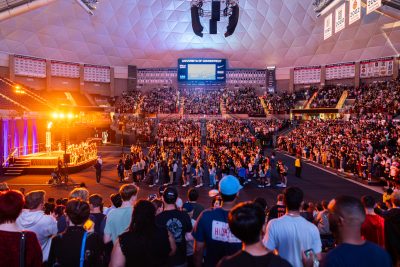
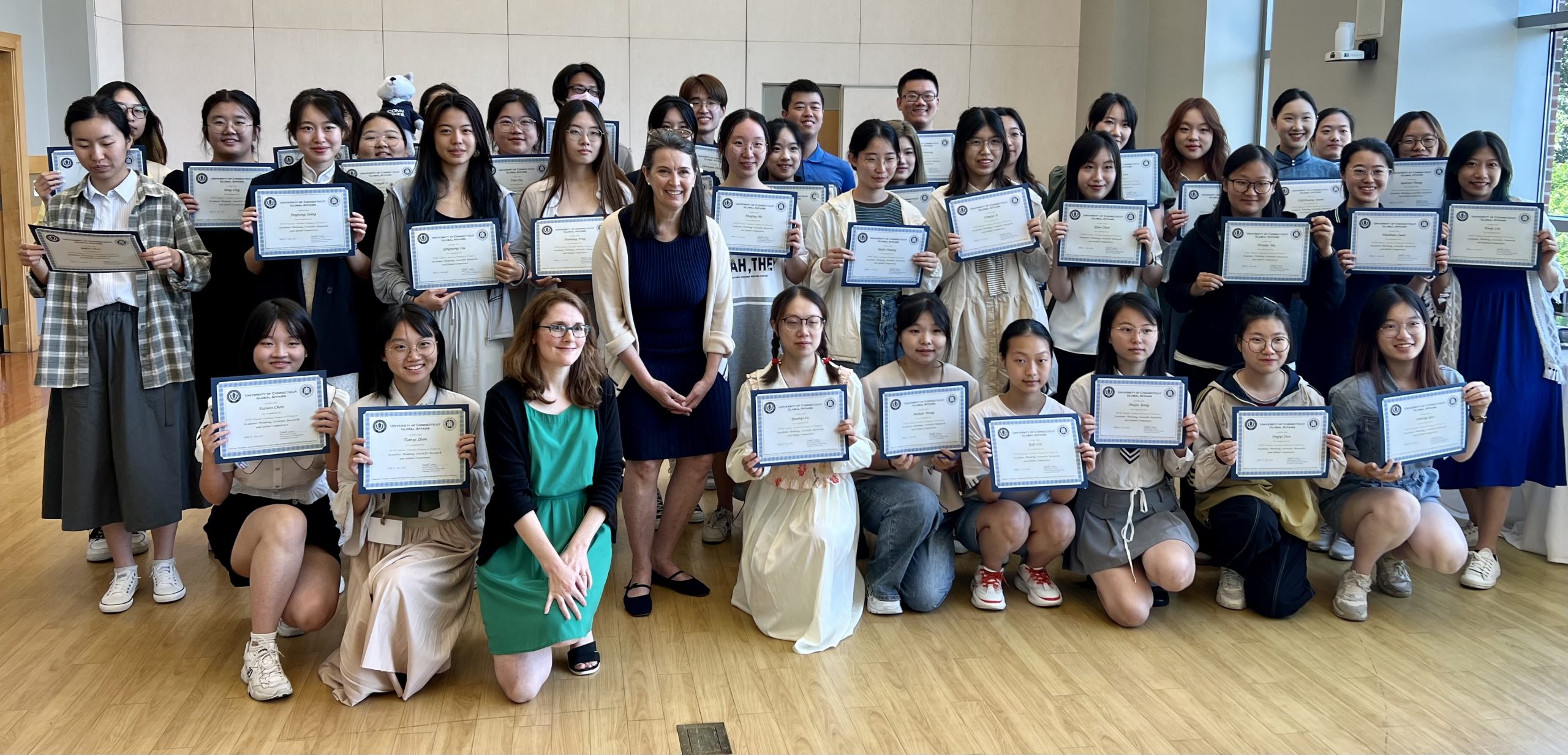
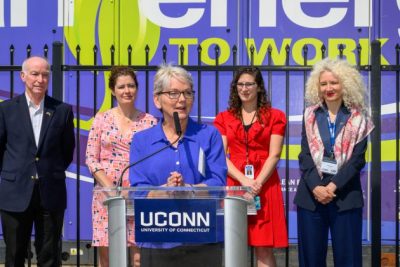
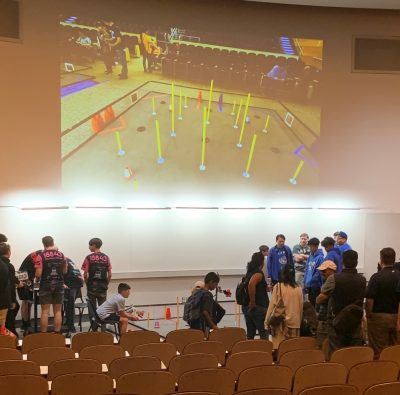
 Douglas Casa has demonstrated a level of scholarly productivity that has led to an international reputation as one of the world’s leading experts in exertional heat stroke, hydration, thermal physiology, sport performance monitoring, maximizing performance in the heat, sport safety, and public policy regarding the prevention of sudden death during physical activity for the athlete, warfighter, and laborer. The work of Casa has not only added to our fundamental scientific understanding in these areas but has impacted policy and quality-of-care changes globally to establish widely used guidelines and practices that have not only improved performance and made physical activity safer but have directly saved thousands of lives. As a scholar, there are four main areas in which Casa has demonstrated, and exceeded in many cases, the university standards of scholarly excellence: 1) innovation and impact; 2) collaborations; 3) funding success; and 4) publication and public recognition. As an example, Casa has been a PI on 18 Department of Defense-funded grants in the past 6 years. UConn’s Korey Stringer Institute (KSI) was established by Casa at the specific request of Kelci Stringer, whose husband Korey Stringer died a tragic and preventable death from exertional heat stroke during a football practice in 2001 with the Minnesota Vikings. The NFL, Gatorade, and UConn joined KSI as the founding partners when the Institute’s doors opened in 2010. The mission of KSI is to provide research, education, advocacy, and consultation to maximize performance, optimize safety, and prevent sudden death for the athlete, warfighter, and laborer. Casa is the CEO of KSI and, with the assistance of an incredible team, has grown the organization to about 80 staff (25 paid and 55 volunteers), Casa has approximately 400 refereed publications and chapters in edited books, seven books, and over 600 presentations (national and international). The innovative and impactful nature of the organization that Casa has created is unarguable and in many diverse ways, it has had a broad-reaching positive ripple effect of scientific, service, and educational influence.
Douglas Casa has demonstrated a level of scholarly productivity that has led to an international reputation as one of the world’s leading experts in exertional heat stroke, hydration, thermal physiology, sport performance monitoring, maximizing performance in the heat, sport safety, and public policy regarding the prevention of sudden death during physical activity for the athlete, warfighter, and laborer. The work of Casa has not only added to our fundamental scientific understanding in these areas but has impacted policy and quality-of-care changes globally to establish widely used guidelines and practices that have not only improved performance and made physical activity safer but have directly saved thousands of lives. As a scholar, there are four main areas in which Casa has demonstrated, and exceeded in many cases, the university standards of scholarly excellence: 1) innovation and impact; 2) collaborations; 3) funding success; and 4) publication and public recognition. As an example, Casa has been a PI on 18 Department of Defense-funded grants in the past 6 years. UConn’s Korey Stringer Institute (KSI) was established by Casa at the specific request of Kelci Stringer, whose husband Korey Stringer died a tragic and preventable death from exertional heat stroke during a football practice in 2001 with the Minnesota Vikings. The NFL, Gatorade, and UConn joined KSI as the founding partners when the Institute’s doors opened in 2010. The mission of KSI is to provide research, education, advocacy, and consultation to maximize performance, optimize safety, and prevent sudden death for the athlete, warfighter, and laborer. Casa is the CEO of KSI and, with the assistance of an incredible team, has grown the organization to about 80 staff (25 paid and 55 volunteers), Casa has approximately 400 refereed publications and chapters in edited books, seven books, and over 600 presentations (national and international). The innovative and impactful nature of the organization that Casa has created is unarguable and in many diverse ways, it has had a broad-reaching positive ripple effect of scientific, service, and educational influence. Lewis Gordon is one of the most important and highly regarded intellectuals in the world writing on anti-racism and Africana philosophy. He is internationally recognized as the leading contributor to the fields of Black existentialism, Africana Existential Phenomenology, Fanon studies, Teleological Studies of Disciplinarity (a field he invented), Decolonialism, and Afro-Jewish Studies. His original theories have generated widely discussed concepts such as “bad faith embodiment,” “epistemic closure,” “disciplinary decadence,” and “shifting the geography of reason,” among many others.
Lewis Gordon is one of the most important and highly regarded intellectuals in the world writing on anti-racism and Africana philosophy. He is internationally recognized as the leading contributor to the fields of Black existentialism, Africana Existential Phenomenology, Fanon studies, Teleological Studies of Disciplinarity (a field he invented), Decolonialism, and Afro-Jewish Studies. His original theories have generated widely discussed concepts such as “bad faith embodiment,” “epistemic closure,” “disciplinary decadence,” and “shifting the geography of reason,” among many others. Purkayastha’s research focuses on the structures of inequalities and social transformation, with specific focus on migrants and migration, gender and intersectionality from a global perspective, and critical human rights. A prolific scholar, with a current tally of 15 books, 36 peer reviewed articles, 35 chapters, and many other publications that reach across the world. Eagerness to engage with her ideas are evident through her long list of invited talks in the US and across the world, as well as the invitations to share her expertise for policy purposes by WHO (on migrant women and health) and diverse United Nations (UN) offices (including on violence against women and forced migration). A brilliant sociologist, she has been at the forefront of challenging global conceptual and methodological hierarchies, including between the Global North and South, that act as barriers to robust and meaningful social science research.
Purkayastha’s research focuses on the structures of inequalities and social transformation, with specific focus on migrants and migration, gender and intersectionality from a global perspective, and critical human rights. A prolific scholar, with a current tally of 15 books, 36 peer reviewed articles, 35 chapters, and many other publications that reach across the world. Eagerness to engage with her ideas are evident through her long list of invited talks in the US and across the world, as well as the invitations to share her expertise for policy purposes by WHO (on migrant women and health) and diverse United Nations (UN) offices (including on violence against women and forced migration). A brilliant sociologist, she has been at the forefront of challenging global conceptual and methodological hierarchies, including between the Global North and South, that act as barriers to robust and meaningful social science research.
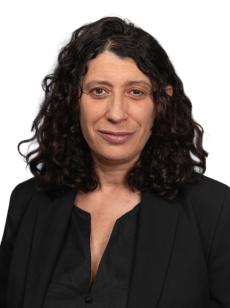
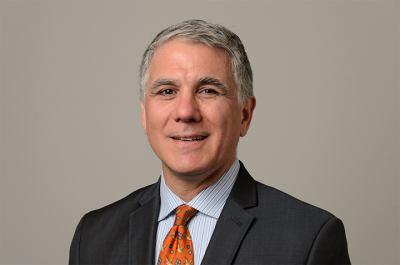
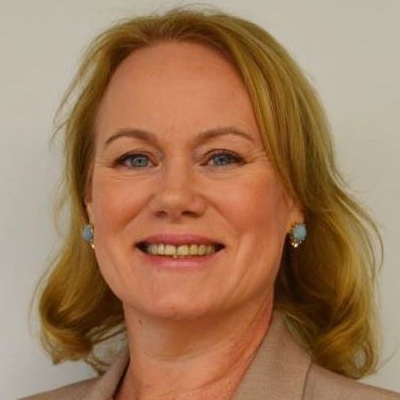
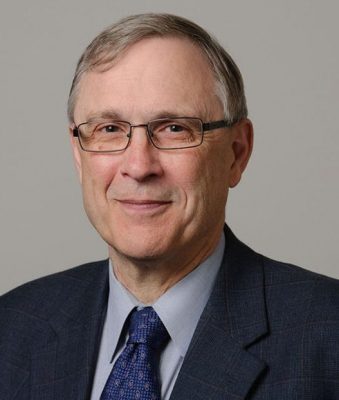
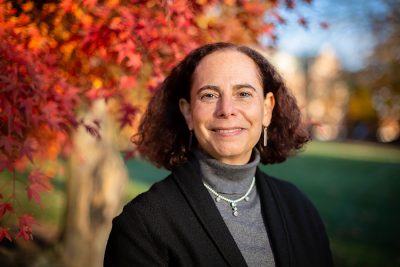
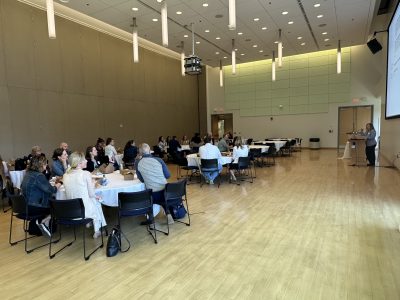

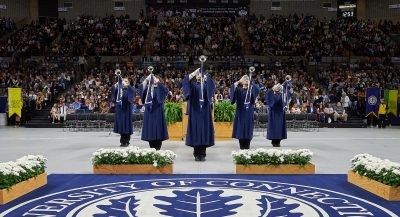

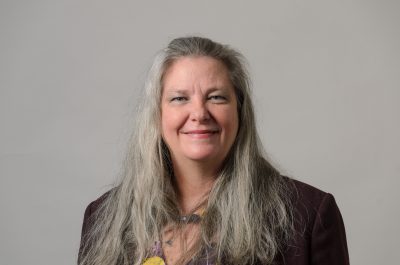
 Have you ever been worried about a student? Faculty and staff are in an ideal position to recognize when someone is struggling emotionally and may need help. Kognito is an online interactive training that lets faculty and staff practice conversations with virtual students, to assist with engaging students and connecting them to other campus resources when needed. Student Health and Wellness (SHaW) is making this program available to all members of the UConn community to help create a safer and more supportive campus.
Have you ever been worried about a student? Faculty and staff are in an ideal position to recognize when someone is struggling emotionally and may need help. Kognito is an online interactive training that lets faculty and staff practice conversations with virtual students, to assist with engaging students and connecting them to other campus resources when needed. Student Health and Wellness (SHaW) is making this program available to all members of the UConn community to help create a safer and more supportive campus. The mission of the Institute of Materials Science (IMS) is to promote education, research, and outreach across internal and external communities in the exciting and ever-growing field of materials research. There are three major educational programs in IMS including the Materials Science and Engineering Department, the Materials Science Ph.D. program, and the Polymer Ph.D. program. Undergraduate students in our research groups are trained in making, characterizing, and applying materials. Independent study, senior design, NSF REU, UCONN SURF, work study, and individual research projects are all supported by our labs and funding. Graduate student fellowships through the UCONN Foundation and federally funded programs also contribute to educational efforts. A new online certificate program in Advanced Materials Characterization is aimed at practical aspects of use of instruments and data interpretation, including workforce education of industrial researchers. Over 150 faculty members and similar numbers of graduate students use the Core Research and Service Facilities in IMS. Lab Managers of these facilities are Ph.D. level researchers who train students, operate, and provide maintenance of instruments.
The mission of the Institute of Materials Science (IMS) is to promote education, research, and outreach across internal and external communities in the exciting and ever-growing field of materials research. There are three major educational programs in IMS including the Materials Science and Engineering Department, the Materials Science Ph.D. program, and the Polymer Ph.D. program. Undergraduate students in our research groups are trained in making, characterizing, and applying materials. Independent study, senior design, NSF REU, UCONN SURF, work study, and individual research projects are all supported by our labs and funding. Graduate student fellowships through the UCONN Foundation and federally funded programs also contribute to educational efforts. A new online certificate program in Advanced Materials Characterization is aimed at practical aspects of use of instruments and data interpretation, including workforce education of industrial researchers. Over 150 faculty members and similar numbers of graduate students use the Core Research and Service Facilities in IMS. Lab Managers of these facilities are Ph.D. level researchers who train students, operate, and provide maintenance of instruments.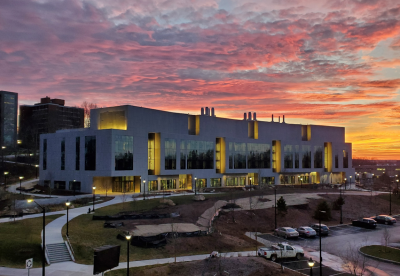 Our efforts are multifold in support of the University's research mission. Besides individual grants and contracts, IMS houses numerous multi-investigator awards due to the strong inerdisciplinary composition of faculty members and students from various schools and colleges. Some of the multi-investigator programs housed in IMS include large federal programs under MURI, I/UCRC, ARPA-E, and GAANN Fellowship programs in both Polymers and Materials Science & Engineering. Major industry programs include the Pratt Center of Excellence, the Collins Aerospace Center of Excellence, the DENSsolution Center of Excellence, and the UConn Thermo Fisher Scientific Center for Advanced Microscopy and Materials Analysis. These programs all provide support to graduate students and a foundation for many Ph.D. theses. Many of IMS’s industrial research partners are members of the review committees for our graduate students and provide outstanding perspective of potential careers, as well as advice about research. The new building for IMS is shown here.
Our efforts are multifold in support of the University's research mission. Besides individual grants and contracts, IMS houses numerous multi-investigator awards due to the strong inerdisciplinary composition of faculty members and students from various schools and colleges. Some of the multi-investigator programs housed in IMS include large federal programs under MURI, I/UCRC, ARPA-E, and GAANN Fellowship programs in both Polymers and Materials Science & Engineering. Major industry programs include the Pratt Center of Excellence, the Collins Aerospace Center of Excellence, the DENSsolution Center of Excellence, and the UConn Thermo Fisher Scientific Center for Advanced Microscopy and Materials Analysis. These programs all provide support to graduate students and a foundation for many Ph.D. theses. Many of IMS’s industrial research partners are members of the review committees for our graduate students and provide outstanding perspective of potential careers, as well as advice about research. The new building for IMS is shown here.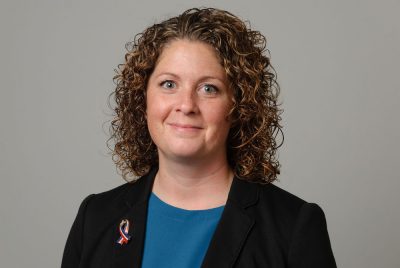 The Office of the Provost and the units that report in academic affairs are staffed and led by an outstanding group of talented and dedicated colleagues. This month we are spotlighting Alyssa Kelleher, Director of the Office of Veterans Affairs and Military Programs.
The Office of the Provost and the units that report in academic affairs are staffed and led by an outstanding group of talented and dedicated colleagues. This month we are spotlighting Alyssa Kelleher, Director of the Office of Veterans Affairs and Military Programs.
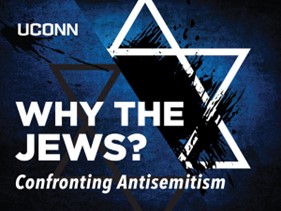
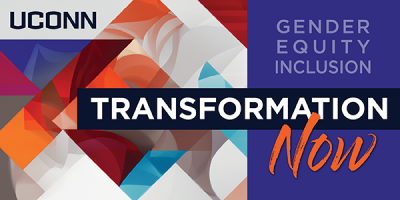
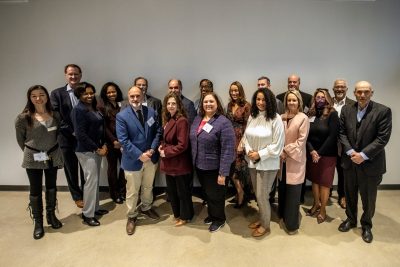
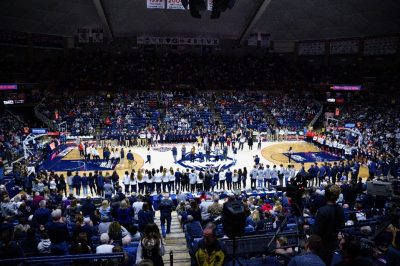 On February 15, the Student Athlete Success Program and Division of Athletics held their annual 3.0 Night celebration at the UConn Women’s basketball game vs. CCSU. The event recognized student athletes who achieved a 3.0 or better in the Spring ’22 and/or Fall ’22 semesters. We are proud and inspired by our student athletes who display excellence both in their sport, and in the classroom. We are so proud of the work completed by Ellen Tripp, the director of the Student-Athlete Success Program (SASP), as well as all of the counselors and advisors in this unit for the valuable support and academic counseling they provide to our student-athletes, helping to ensure their academic success.
On February 15, the Student Athlete Success Program and Division of Athletics held their annual 3.0 Night celebration at the UConn Women’s basketball game vs. CCSU. The event recognized student athletes who achieved a 3.0 or better in the Spring ’22 and/or Fall ’22 semesters. We are proud and inspired by our student athletes who display excellence both in their sport, and in the classroom. We are so proud of the work completed by Ellen Tripp, the director of the Student-Athlete Success Program (SASP), as well as all of the counselors and advisors in this unit for the valuable support and academic counseling they provide to our student-athletes, helping to ensure their academic success.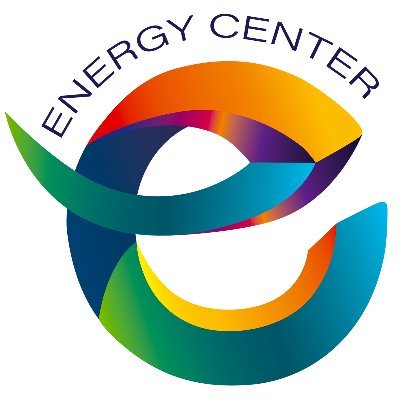 The Eversource Energy Center, founded in 2015 at UConn in partnership with the Eversource Energy Company, is a unique research institute whose mission is “to be the foremost energy utility-academia partnership advancing leading-edge interdisciplinary research and technology assuring reliable power during extreme weather and security events.”
The Eversource Energy Center, founded in 2015 at UConn in partnership with the Eversource Energy Company, is a unique research institute whose mission is “to be the foremost energy utility-academia partnership advancing leading-edge interdisciplinary research and technology assuring reliable power during extreme weather and security events.”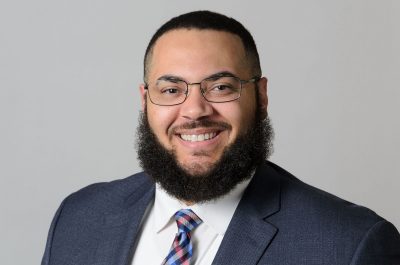
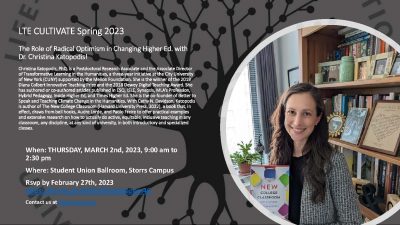
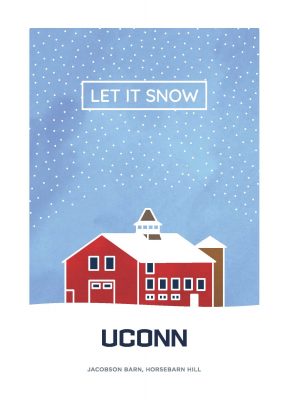 With finals wrapping up this past weekend, we have reached the end of the fall 2022 semester. This past semester, and all of 2022 for that matter, feels like it has flown by. I am feeling inspired, grateful, and proud to be a part of this university and am looking forward to seeing what we will accomplish in the coming year. I’m thankful for the role that each staff member, faculty member, student, parent, and community member played in supporting each other throughout the year and in making UConn great.
With finals wrapping up this past weekend, we have reached the end of the fall 2022 semester. This past semester, and all of 2022 for that matter, feels like it has flown by. I am feeling inspired, grateful, and proud to be a part of this university and am looking forward to seeing what we will accomplish in the coming year. I’m thankful for the role that each staff member, faculty member, student, parent, and community member played in supporting each other throughout the year and in making UConn great.
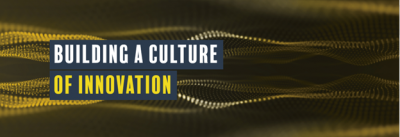

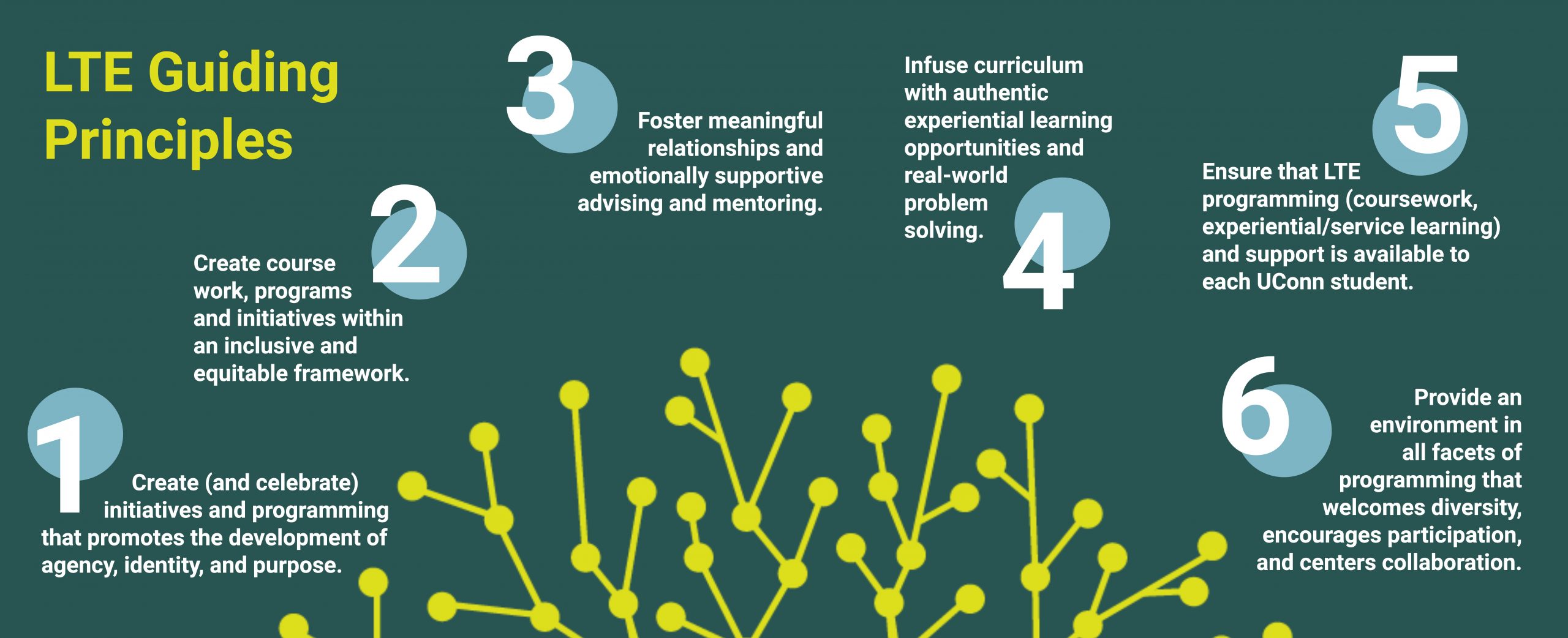


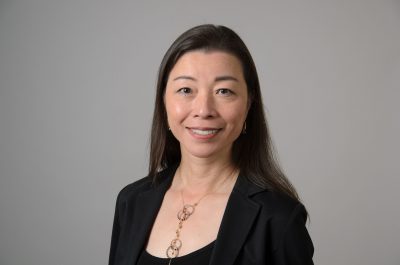 Dr. Fumiko Hoeft has been appointed as the next
Dr. Fumiko Hoeft has been appointed as the next  UConn’s
UConn’s 
